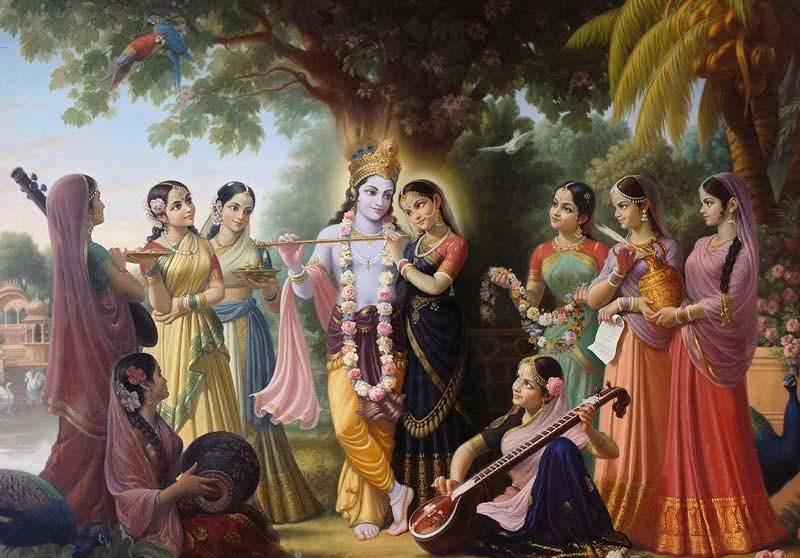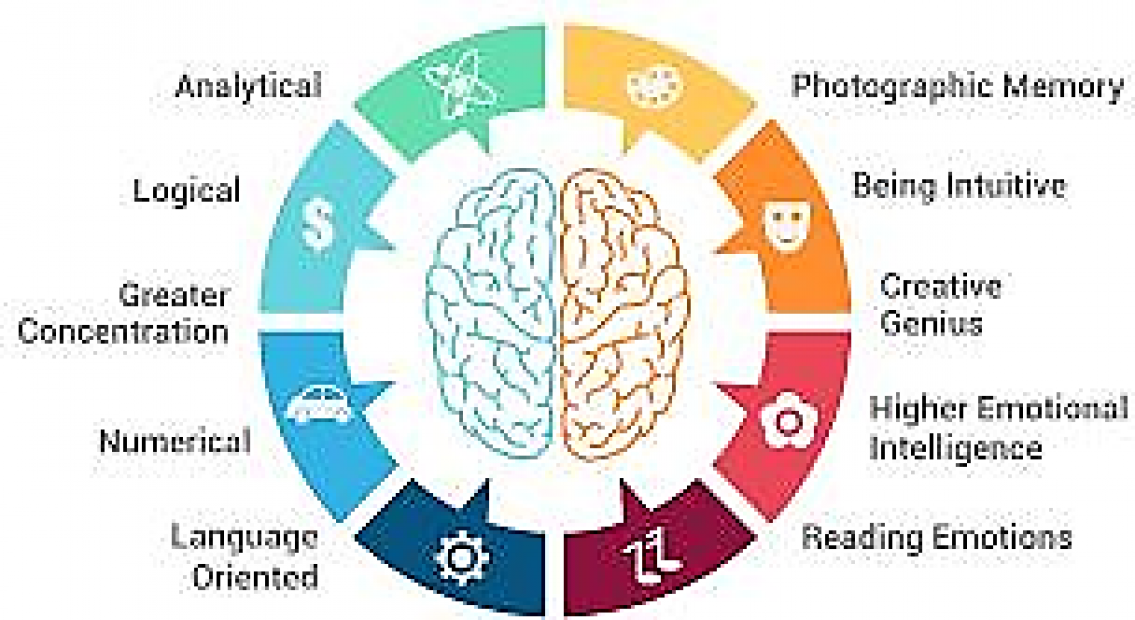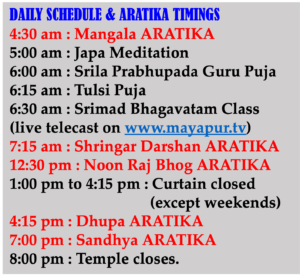Caring for each other
WHOLESOME DEVOTEE CARE INITIATIVE
What is the OUTLINE?
What is the MISSION?
What is the VISION?
To accomplish the Mission by encouraging devotees to incorporate WDC Pyramid in their individual lives and recommend necessary changes in the operations of ISKCON for a stronger and more bonded ISKCON family with wholesome health.
What is WHOLESOME DEVOTEE CARE PYRAMID?
Health, according to the World Health Organization, is a state of complete physical, mental, and social wellbeing, and not just the absence of conditions or diseases. A holistic approach to health also brings in cognitive/intellectual and spiritual aspects under the umbrella of wholesome health. Individual wholesome health thus encompasses physical, emotional, cognitive, social, and spiritual aspects.
All these components of wholesome health should be brought into a devotee’s life to reap the full benefit in each aspect by incorporating below designed Wholesome Devotee Care Pyramid.

For more details or to be a part of the team, contact ISKCON New Goloka Devotee Care Coordinator:
Ujjvala Rasajna Dasi +1 (347) 610-8257 ujjvalarasajnadds@gmail.com
Click on the images below to read more about each aspect of health:
Application of WDC Pyramid for Wholesome ISKCON

TRAINING
- Physical: Yoga & Pranayama – 4 week training course
- Emotional: Emotional health courses and training on Karuna Care
- Cognitive Health: Sastric study and sloka memorization classes
- Social Health: Empathic Communication, Devotee care
- Spiritual Health: Japa Workshop
- Spiritual Care – Japa, Krsna katha, Seva
ISKCON New Goloka offers many programs for wholesome care: morning program and Sunday classes at the temple, Conference calls for sastra study, Japa seminars, Japa calls, Celebrating festivals together, Temple and congregational services together.
Support:
Spiritual Advisors:
HH Bir Krsna Das Goswami Maharaj; HG Urmila Devi Dasi; HG Drsta Dasa & Rudrani Devi Dasi; HG Kamalini Dasi; HG Krsna Priya Dasi
Spiritual mentors:
Many qualified brahman initiated devotees
- Cognitive Care: Sastric study, Bhakti Shastri Courses, Teaching, Bhakti Vriksa Programs, memorization of verses, Namahatta Programs, learning Sanskrit, Sloka memorization calls.
- Emotional Care
- Education (WDC series): Offered… RULER for self care, Beautiful boundaries, Spiritual bypassing. Yet to come…. Devotion in different stages of life.
- TRAINING (Karuna Care): Introduction to Compassionate Care, impact of Grief on Spiritual Growth, Name your Feelings: Tame your Mind, Trauma, addiction and Complicated Grief, The Right Use of Power: Ethics with Wisdom, Compassionate Care Companion Training.
- SUPPORT: Compassionate listening circles ( by congregation servant leaders ), Grief support group ( Karuna care), Divorce Grief support group (Karuna care), Suicide grief support group (Karuna care), Men’s only support group (karuna care)
- RESOURCES Onsite: Jaya Shree Dd ( Dr. Jessica Harrison); Ujjvala Rasajna Dd ( Dr. Usha Donthireddi). Online: Karunacare.iskcon.org
- Social care – Devotee relationships
- Emphasis on empathic communication: Verbal, Non verbal, Sharing in confidence and maintain confidentiality.
- Facilitate devotee care: Respect differences, Work together peacefully with respect and cooperation.
- TRAINING: Empathic Communication training.
- Physical Care NG Medical Team, Medical resources, Yoga and pranayama workshop, Ayurveda & Homeopathy support and consultations
Devotee Care Teams & Services

- Elder Care Team
- Financial aid and social services
- Public resources & Medical resources
- Medical aid
- Devotee buddies
- Vaishnavi Care Team
- Vaishnavi retreat
- Child Protection and Child Welfare Team: Child Protection Team, Child Welfare Team.
- Youth Care Team: Youth chat, Youth listening circles.
- Social services
- Fundraising/Financial aid Team
- Transportation Team
- Meal Train and Prasadam distribution Team.
- Sastra study for patients/elderly
- More suggestions and participation are welcome
We welcome you to be a part of this devotee care team.
- PHYSICAL HEALTH
It is important to keep the body fit and healthy so that we do not meet the obstacle of ill health while serving Krishna. Ill health may hinder one’s service, so best to keep ill health at bay as much as possible.
What does Ayurveda say about physical health?

Prana, agni, and ojas are the three pillars of health.
- Prana is the animating principle that confers action to every layer of existence: When prana is flowing unimpeded, we feel invigorated and alert. We have strong vitality and enthusiasm, and there is healthy appetite, proper elimination, normal tissue formation, and sound sleep
- Agni is the power of assimilation. When agni is well regulated, intellect is composed, perception is keen, emotions are controlled, digestion is sound, there is proper bodily heat and thirst, and the skin becomes soft and lustrous.
- Ojas is the energy of preservation. When there is sufficient ojas, we experience contentment, courage, and dignity. The body is properly proportioned and strong, and the skin is smooth and moist.
What does Ayurveda say about the sound vibration emanating from the most internal realm of existence affecting overall health?
- Suddha Ayurveda approach begins by focusing on organizing the power of sound vibration emanating from the highest and most internal realm of existence.
- When chitta-suddhi acts on the layer of ego, balance manifests as pure joy, a celebration of the intrinsic nature of the soul as dependent upon and united with the absolute center in dedication, meditative contemplation, and love. From this plane, sound vibration descends, progressively aligning the layers of intellect, mind, energy, and the physical body.
- Through the application of sattva-suddhi, balance manifests in the layer of intellect as wisdom to act according to time, place, and circumstance. It is at this level that decisions can be made regarding doing what is ultimately correct and desirable, rather than what is temporarily pleasant or expedient. Interventions that are specific to this layer include accepting instructions from the qualified preceptor, hearing and reciting the scriptures, and adopting the basic observances and injunctions of spiritual conduct.
- At the level of mind, balance manifests as freedom from the five mental afflictions: nescience, false identification, attachment, aversion, and clinging to the temporal material body. These five afflictions create static patterns of behavior that limit our adaptive potential when faced with changing circumstances. Freedom from these five afflictions allow us to react swiftly and appropriately to challenges from other living entities and the environment. Ayurvedic interventions that are specific to the mental layer include association with like-minded practitioners of spiritual discipline, austerity, and proper utilization of sense objects.
- In the layer of energy, balance manifests as synchronicity among the three pillars of health and confers the ability to protect the life force, regulate metabolism, and cultivate endurance. Ayurvedic interventions at this level include energetic therapies, physical and breathing exercises, and complete rest.
- Through the application of bhuta-suddhi to the layer of the physical body, balance manifests as equilibrium among the biological principles (vata/air, pitta/bile, kapha/phlegm), the bodily tissues, and the three malas, or excretions urine, feces, and sweat). It confers the ability to ingest, transform, appropriate, and excrete nutrients and other elements from and to the external environment. Ayurvedic interventions at this level consist of purification, normalization, individualized nutrition, and regeneration.
What did Srila Prabhupada say about physical health and food?
- “So, if we live a very hygienic life, regulated life, there is no question of cancer or any disease.”
- “By keeping regular habits and eating simple food, any man can maintain his health.”
- “We should not make it a point to satisfy our own tongues. As far as possible we should accept simple foodstuff, just to keep the body and soul together to execute devotional service.”
What factors decide our physical health?

FOOD/PRASADAM

Quality: Removing highly processed foods and replacing them with whole foods that are high in collagen, fiber, and omega-3 fatty acids can help improve your gut bacteria and your mood. Whole grain, fresh vegetables, fruits and nuts are healthy sources to get complete nourishment that human body needs.
In addition, a normal healthy person should consume approximately two liters of water daily for adequate lubrication of joints, proper detoxification and complete elimination of toxins.
It is recommended to avoid egg, sea food and meat so the food is not tainted with violence, avoid onion and garlic so the concentration and negative impact on brain functions due to sulphoxide can be prevented mind is not affected is not dulled by the sulfur present in those foods. In a New York Times article, it is recommended that onions and garlics have a lot in common with gunpowder!
Garlic desynchronizes your brain waves, reaction time is three times slower than that would be without few drops of garlic. Onion causes allergies, intestinal gas, diarrhea and heart burn.
Though there are some medicinal benefits of onions and garlics (some Homeopathic medicines like Alium Cepa are produced from onions), as food items their ill effects outnumber the good ones. They cause aggravation, agitation, anxiety and aggression.
Mood: The food should be cooked in the mode of goodness with peace and pleasant thoughts of Lord Krsna. It is then offered to the Lord with Love. This process of cooking and offering with love is a part of bhakti yoga and can only save us from karmic cycle. When offered food/prasadam is honored with faith, relishing the prasadam displaces the enjoyment tendency in a conditioned soul. If the food is not cooked and consumed in the above process one is verily eating one’s own sins (yajnarthat..BG 3.9 )
Quantity:
- ⅓ stomach empty
- ⅓ solids
- ⅓ liquids
Regularity: Breakfast by 9 am, lunch at noon time, and early dinner by 4-5pm
SLEEP/REST

Is there an internal body clock for sleep that needs to be followed?
- Nature acts and moves according to precise rhythmic cycles influenced by the rotation of the earth, sun, and moon.
- The sun rises and sets daily, the seasons come and go, the moon waxes and wanes, and the ocean tides rise and fall.
- The function of sleeping and wakefulness is part of this natural rhythm.
- In nature, one finds that the animals and plants are awake and asleep in tune with these rhythms.
- Our human bodies, like Mother Nature, function according to natural cycles, body rhythms commonly called the internal body clock or the biological clock.
- Disruptions of the natural functions of our biological clock due to improper habits and incorrect sleeping patterns cause various diseases.
- For example, if your body is overtaxed by digesting a heavy late meal or you are up late (after 10 p.m.) working, playing, watching TV or computer, your vital body energy is focused there and not available for rest and rejuvenation.
How and when does the body detoxify, heal, and rejuvenate in sleep?

Knowing how your body works can help you regulate your schedule to attain the optimum level of health and well-being.
- 9:00 pm – 11:00 pm: This is the time your body eliminates toxic chemicals from the immune system (lymph nodes). **It is best to be sound asleep by 9 pm for your body to properly execute this important function.
- 11:00 pm – 1:00 am: This is the time your liver eliminates poisons and rejuvenates itself.
- 12:00 am – 4:00 am: This is the time your bone marrow produces blood.
- 1:00 am – 3:00 am: This is the time your gallbladder eliminates toxins and rejuvenates itself.
- 3:00 am – 5:00 am: This is the time your lungs eliminate toxins and rejuvenate themselves.
- 5:00 am – 7:00 am: This is the time your colon eliminates poisons and rejuvenates itself. **This is the proper time to empty your bowel.
- 7:00 am – 9:00 am: This is the time that vitamins, minerals, proteins, and nutrients are absorbed in your small intestines. ** Healthy breakfast time.
Shawn Stevenson, Sleep Smarter:
By aligning your sleep time with your body’s natural hormone secretions, including melatonin and human growth hormone (HGH), among other benefits you:
- Feel more energized when you wake up.
- Prevent accelerated aging.
- Get a “second wind” of energy around 10 pm when our body goes through a transformation to increase internal metabolic energy to repair, strengthen, and rejuvenate your body. Heightened production of antioxidant hormones happens at this time to help protect your DNA from damage, improve your brain function, and more.
What are the benefits of physical health?
- Reduces the chance of being overweight or obese, risk of high blood pressure, cardiovascular disease, type 2 diabetes, metabolic syndrome, and some cancers.
- Strengthens your bones and muscles, improves your ability to do daily activities, prevents falls, and increases your chances of living longer.
What are the emotional benefits of physical health?
- Physical exercise releases endorphins, enkephalins, and dopamine.
- They are our natural feel-good hormones.
- They improve our moods, manage chronic pain, and help with depression.
- Over time, regular exercise improves oxygen and nutrient delivery that support brain growth.
How to avoid getting trapped by complacency in spiritual life in the name of physical fitness?
- “Life is for the glorification of topics on Hari. If that is stopped, then what need is there to carry on life?” – Srila Bhaktisiddhanta Sarasvati.
- “Physical illness with Hari-bhajan is preferred to physical fitness without Hari-bhajan” – Srila Bhaktisiddhanta Sarasvati.
How to not get discouraged with ill health?
- “So, I am sorry to learn that you are not well. Pray to Krishna and chant Hare Krishna. The body is a temple of disease, janma mrtyu jara vyadhi [Bg. 13.9]. Disease is our inevitable companion. We still have to execute our duty of Krishna consciousness as far as possible and Krishna will help us” – Srila Bhaktivedanta Swami Prabhupada.
EXERCISE
Benefits on Physical Health:
- Reduces the risk of being overweight, hypertension, cardiovascular disease, type 2 diabetes, metabolic syndrome, and cancers
- Strengthens your bones and muscles
- Increases your chances of living longer
Benefits on Mental Health:
- Physical exercise releases endorphins, enkephalins and dopamine. They are our natural feel-good hormones
- They improve our moods, manage chronic pain, help with depression
- Over time, regular exercise improves oxygen and nutrient delivery that supports brain growth
ENVIRONMENT

What are the benefits of simple living / being close to nature?
- Being in nature, or even viewing scenes of nature, reduces anger, fear, and stress and increases pleasant feelings.
- Exposure to nature not only makes you feel better emotionally, it contributes to your physical wellbeing by reducing blood pressure, heart rate, muscle tension, and the production of stress hormones.
2. EMOTIONAL HEALTH
Emotional Needs:
Our emotional needs are:
- Status: Feeling valued.
- Connection: Feeling understood and appreciated; sharing values and similar experiences.
- Safety: Feeling safe and reliable; feeling trust.
We need to bring out the emotions and thoughts and reconnect with ourselves. If the emotions are bottled up and are not expressed, they can affect both physical and psychological health.
Emotional Nourishments:
Emotions can be expressed and nourished through various means:
- Singing bhajans.
- Writing poetry.
- Playing music.
- Dancing.
- Drama performances.
- Hearty, nourishing devotee interactions etc.

How were Acharyas’ emotional health managed?
- Saranagati was the platform they were on, offering loving service. Thus, namaruchi, vaisnava seva and jivadaya were an integral part of their existence. Thus, all aspects of wholesome devotee care were naturally and abundantly fulfilled by being in their spiritual disposition.
- Acharyas instructed on what to do with material feelings like lust, envy, etc.; “direct our four group of emotions towards Krsna in His service through their bhajans”.
Is there something that could to help us practice the instructions of the acharyas?
- Yes, raising emotional awareness by using emotional tools give us a platform to stand and get grounded to implement the instructions of Acharyas.
- Two tools that we discuss here are: Establishing individual sacred boundaries, internal application of RULER.
Emotional tools:
What are sacred boundaries?
- How do you create them?
- What are we doing with this?
- What happens within these sacred boundaries?
Boundary is an oval shaped protective imaginary bubble that is formed by extending your arms in all directions. The space inside this imaginary bubble is your private and personal space. This personal space is sustained by your healthy, free flowing emotions. You can work with your sensations, thoughts, emotions, and ideas in this space.
Having clear boundaries means knowing who you are and showing where you begin and end. When your boundaries are well defined, you will create healthy separations between your needs, beliefs, and emotions, and those of others. Setting a healthy boundary gives you and everyone around you the space you need to be your best self.
What is RULER and its place in spiritual practice?
RULER – Tool created by emotional intelligence specialist and director of the Yale department of Emotional Intelligence in order to raise emotional awareness.
- How do we apply RULER?
The application of RULER is better done with the knowledge of the four groups of emotions that humans have and then
- Four group of emotions:

- Application of RULER:
Slow down, recognize, understand, label, express and regulate one’s feelings that are hiding inside and surface from time to time.

RULER helps us to access and harmonize the messages being sent by super soul from within, through one’s body and mind, and thus help us to be grounded in Krsna consciousness.
Voice of false ego and super soul is differentiated by sincere chanting and guidance from sadhus.
What is Emotional trauma? What can be done to not get emotionally traumatized?
How is it that animals that are regularly exposed to life-threatening traumatic experiences are not traumatized, but humans are traumatized by traumatic experiences?
It is thought that this is because it is easier for them to allow their bodies to discharge the “fight, flight, or freeze” energy produced by a traumatic incident. Our bodies, like those of the animals, are also designed to discharge traumatic stress energy so one may not stay traumatized after a traumatic experience.
The problem arises when our natural systems become overwhelmed and are no longer able to “digest,” or move on from a traumatic experience — this is the point where someone is considered to be “traumatized.” As a result, even after many years, an individual can still be suffering from the effects of a trauma because the traumatic energy has somehow become locked up in his or her physical or energetic system.
An important point to remember is that the results of trauma (e.g., shock, dissociation, and depression) are not pathological, i.e., they are not a disease. They are normal predictable reactions to a traumatic experience.
Resources for Emotional Health:
- www.karunacare.iskcon.org
- Bhakti bhava, the emotional dynamics of a devotee – Devamrita Swami
- Realizing our empathic nature – Bir Krsna Goswami.
- Living the Wisdom of Bhakti: Life as a spiritual practice – Mahatma das.
- www.patreon.com/karunacareassociation – become a member to view related material.
3. COGNITIVE HEALTH
While the right brain is the seat for emotions, both hemispheres of brain contribute to cognitive functioning. 
All of us have some kind of cognitive ability or natural talent that could be used to express our emotions in the service of Krsna.
What are cognitive abilities?
Think-learn-listen-understand-justify-question-close attention. If any of these abilities are compromised, it affects the comprehension, retention, or usage of that knowledge.
What are the cognitive abilities that devotees can practice?
- Creative impetus: Garland making, decorating, cooking etc.
- Memory: Memorization of verses etc.
- Analytical and logical: Coordination, Organization and management etc.
- Analytical, Greater concentration, language oriented: Systematic study of scriptures with deliberation, giving lectures, teaching etc.
5. SPIRITUAL HEALTH
Krsna katha and Harinam constitute the store house for spiritual health

Krsna Katha
- How to hear Krsna katha?
- What happens when we hear Krsna katha?
Satāṁ prasaṅgān mama vīrya-saṁvido… (3.25.25)
- The first point is that one must seek the association of persons who are Kṛṣṇa conscious and who engage in devotional service. Without such association one cannot make advancement…
- by such association, when one contemplates and tries to understand the transcendental activities of the Lord, the path to liberation is opened and he is freed…
- his attraction for association with the Lord and the devotees increases…
- The devotee who makes this association develops the consciousness for rendering service to the Lord, and then…
- being situated in the transcendental position of devotional service, he gradually becomes perfect.
Śṛṇvataḥ śraddhayā nityaṁ… (SB 2.8.4)
“Persons who hear Śrīmad-Bhāgavatam regularly and are always taking the matter very seriously will have the Personality of Godhead Śrī Kṛṣṇa manifested in their hearts within a short time.”
Mad-āśrayāḥ kathā mṛṣṭāḥ… (SB 3.25.23)
“Ordinary conditioned souls, being forgetful of the activities of the Lord, are always full of anxieties and material tribulations. On the other hand, since the devotees always engage in the topics of the Lord, they are forgetful of the miseries of material existence.”
(Taking association and shelter of a pure devotee, when Krsna katha is heard from them with great faith and earnestness regularly and contemplating on the subject matter and applying it under the guidance, his attraction for the association with the Lord and devotees increases, consciousness for rendering loving service to the Lord increases and he gradually becomes perfect.)
We have to hear about the Supreme Lord from His own agent. When we hear those things, then all material experiences and the inclination to make false arguments have to be locked up. When we hear about the Supreme Lord from a sadhu who can deliver these talks in a bold, lively, inspiring way, then all weaknesses will disappear from our hearts, we will feel a kind of courage which was never there before, and the soul’s natural tendency to surrender to the Lord will fully manifest itself. In that surrendered heart the eternally manifested truth of the transcendental world will spontaneously reveal itself (Bhaktisidhanta Sarasvati Thakura, Amritavani 7.5).
Harinam
What is the significance of Harinam?
Tara madhya sarva sresta nama sankirtana …
niraparadhe nama laile paya prema dhana (CC antya 4.71)
“Of the nine processes of devotional service, the most important is to always chant the holy name of the Lord. If one does so, avoiding the ten kinds of offenses, one very easily obtains the most valuable love of Godhead.”
What is special about the Harinam brought by Sri Chaitanya Mahaprabhu?
Golokera prema-dhana, hari-nāma-sańkīrtana (Prarthana)

The treasure of divine love in Goloka Vrndavana has descended as the congregational chanting of Lord Hari’s holy names.
How do we engage in Harinam?

What is the internal mood during Harinam?
Begging…

Saranagati…

Service….

What helps us to do the bhajan in the mood prescribed by the sastra and acharyas?

How do we know our bhajan is fructifying?
adveṣṭā sarva-bhūtānāṁ (BG 12 13-14)
One who is not envious but is a kind friend to all living entities, who does not think himself a proprietor and is free from false ego, who is equal in both happiness and distress, who is tolerant, always satisfied, self-controlled, and engaged in devotional service with determination, his mind and intelligence fixed on Me –such a devotee of Mine is very dear to Me.
evaṁ-vrataḥ sva-priya-nāma-kīrtyā (SB 11.2.40)
By chanting the holy name of the Supreme Lord, one comes to the stage of love of Godhead. Then the devotee is fixed in his vow as an eternal servant of the Lord, and he gradually becomes very much attached to a particular name and form of the Supreme Personality of Godhead. As his heart melts with ecstatic love, he laughs very loudly or cries or shouts. Sometimes he sings and dances like a madman, for he is indifferent to public opinion

- What is our qualification to perform bhakti? How deeply are we indebted to Sri Guru?
kirāta-hūṇāndhra-pulinda-pulkaśā…. (SB 2.4.18)
A Vaiṣṇava is powerful enough to turn into a Vaiṣṇava even the Kirāta, etc., as above mentioned. In the Bhagavad Gita (9.32) it is said by the Lord that there is no bar to becoming a devotee of the Lord (even for those who are lowborn, or women, śūdras or vaiśyas), and by becoming a devotee everyone is eligible to return home, back to Godhead. The only qualification is that one take shelter of a pure devotee of the Lord…. (SB 2.4.18P)

jogyate-vichare kichunahi paye… (Sarnagati, Bhaktivinoda Thakura)
If you examine me, you will find no qualities. Your mercy is all that I am made of. If you are not merciful unto me, I can only weep, and I will not be able to maintain my life.
- Who are these pure devotees?
vyaktam ātmavatām ātma… (SB 4.22.16)
The Supreme Personality of Godhead is always anxious to elevate the living entities, who are His parts and parcels, and for their special benefit the Lord travels all over the world in the form of self-realized persons like you.

- How can we repay the debt to Sri Guru?
yair īdṛśī bhagavato… (SB4.22.47)
How can such persons, who have rendered unlimited service by explaining the path of self-realization in relation to the Supreme Personality of Godhead, and whose explanations are given for our enlightenment with complete conviction and Vedic evidence, be repaid except by folded palms containing water for their satisfaction? Such great personalities can be satisfied only by their own activities, which are distributed amongst human society out of their unlimited mercy








4. SOCIAL HEALTH
Healthy social interactions reflect healthiness in other aspects of individual care. Also, these healthy social interactions can contribute and nourish one’s emotional and spiritual aspects.
What is the need for social interaction? How is it different in devotee circles?
Generally, social interactions are conditional for return favor. Devotee interactions are unconditional for the goal of prema.
(Srila Jiva Goswami: “Though one usually ignores others in attaining one’s own goals, those aspiring for prema accept dependence on others with similar goals and tastes. Thus, cooperating with each other, they work together keeping in mind the goal of prema.” Jiva Goswami, Sri Madhava Mahotsava, ch4)
Why to serve Vaishnavas?
What are the ways and means of serving Vaishnavas?
This can vary from one congregation to another depending on the individual congregational needs. General ways of serving Vaishnavas are by following Vaishnava etiquette and having six loving exchanges of Vaishnavas.